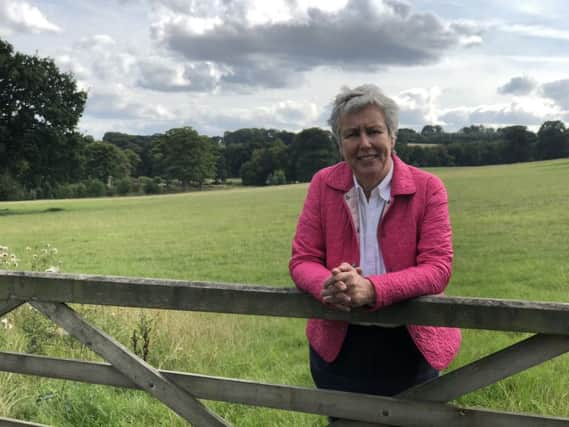'˜Give upland farms fair deal to adapt to post-Brexit era', urges rural Yorkshire lobby leader
This article contains affiliate links. We may earn a small commission on items purchased through this article, but that does not affect our editorial judgement.


Dorothy Fairburn, northern director of the Country Land and Business Association, expects that upland farmers, who currently rely heavily on the EU export market for the sheepmeat they produce, may have to reduce production after Brexit and rely more upon payments for environmental measures in order to make a living.
Speaking at a round table discussion about the impact of Brexit on farmers’ decision making held by The Yorkshire Post this week, Miss Fairburn said that if upland farmers are to embrace the Government’s vision, any structuring of environmental scheme payments must be economically attractive.
Advertisement
Hide AdAdvertisement
Hide AdShe said: “I think the direction of travel from the Government suggests there will be ways of supporting the uplands for the goods they provide but they might have to look at whether they stop producing so many lambs and look at planting some hillsides, putting in some forestry, doing a bit of conservation work on a meadow and putting in measures to slow the flow of water.
“That sort of thing will provide you with some income.”
READ MORE
Advertisement
Hide AdAdvertisement
Hide AdAn Environmental Land Management scheme has been proposed by the Government, in which farmers will be rewarded for delivering “public goods”, to replace direct support payments and it must pay, Miss Fairburn said.
“When we are lobbying government we are saying these payments for public goods have got to be sufficiently high that people regard it as an economic option. Farmers have got to look at their businesses and say yes we will do that.
“This scheme must not just be based on the way conservation payments have been paid previously, there has got to be a real incentive if that’s what the Government wants then they have got to put their money where their mouth is.”
Environment Secretary Michael Gove has been vocal on his commitment to supporting upland farmers when Britain leaves the EU.
Advertisement
Hide AdAdvertisement
Hide AdDiscussing the importance of upland farmers at the recent Oxford Farming Conference, Mr Gove acknowledged that upland sheep farmers tend to have small profit margins but that their contribution to rural life and the maintenance of iconic landscapes was “immense”.
And at this week’s Conservative Party conference, he said he was committed to “making sure that we preserve communities in less favoured areas” such as the uplands.
Those comments followed remarks at the National Farmers’ Union conference earlier in the year, where Mr Gove said: “Cumbria and Northumberland, Yorkshire’s Dales and Pennine Lancashire would not be as they are - both as breathtakingly beautiful and as resilient - without our upland sheep farmers.”
The Government has stated that its new environmental land management system will be subject to “extensive” tests, trials and pilots over a period of about five years, with direct support payments phased out between 2021 and 2027.
Advertisement
Hide AdAdvertisement
Hide AdA spokesperson for the Department for the Environment, Food and Rural Affairs said: “We are determined to get the best deal for the UK in our negotiations to leave the EU, and have been clear that post-Brexit, the UK will be able to develop its own trade policy for the first time in forty years - boosting trading relationships, maximising global opportunities and securing trade deals that work for our valued food and farming sectors.
“Through our new Agriculture Bill we have also committed to maintaining the same total funding for this sector until the end of this parliament, with farmers in the uplands well placed to benefit from this.”